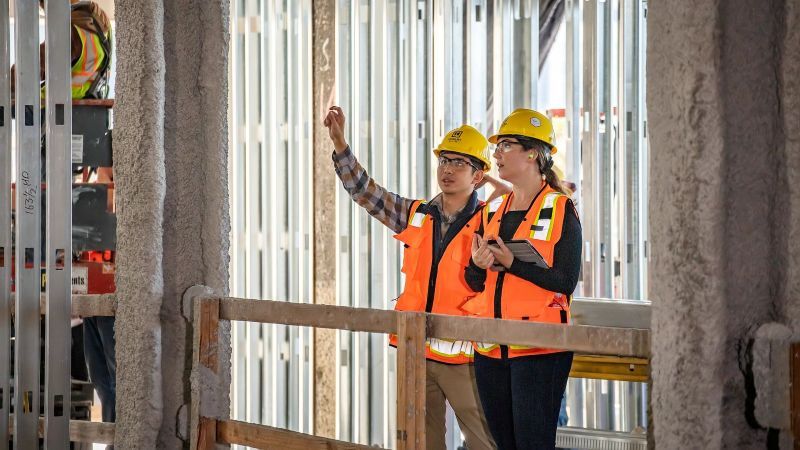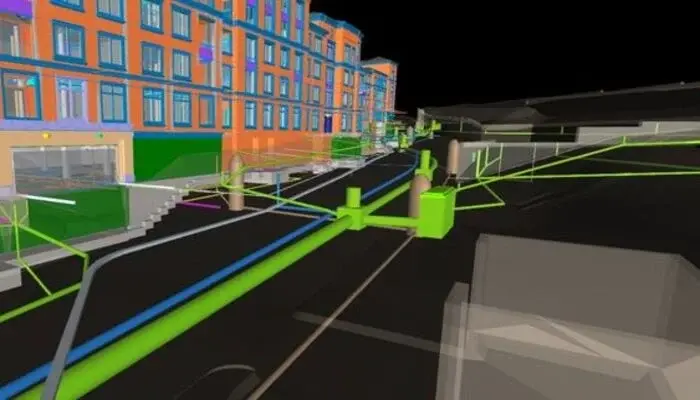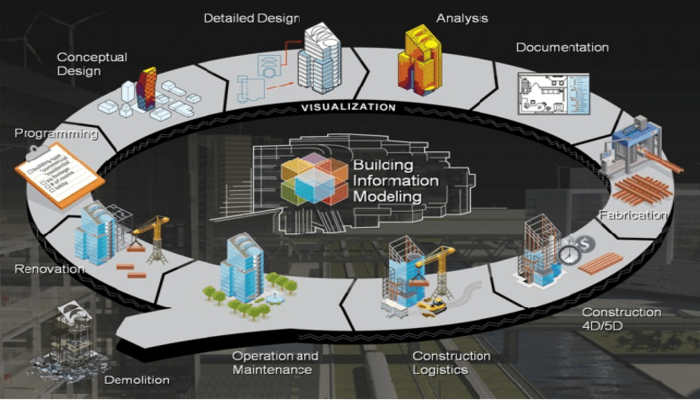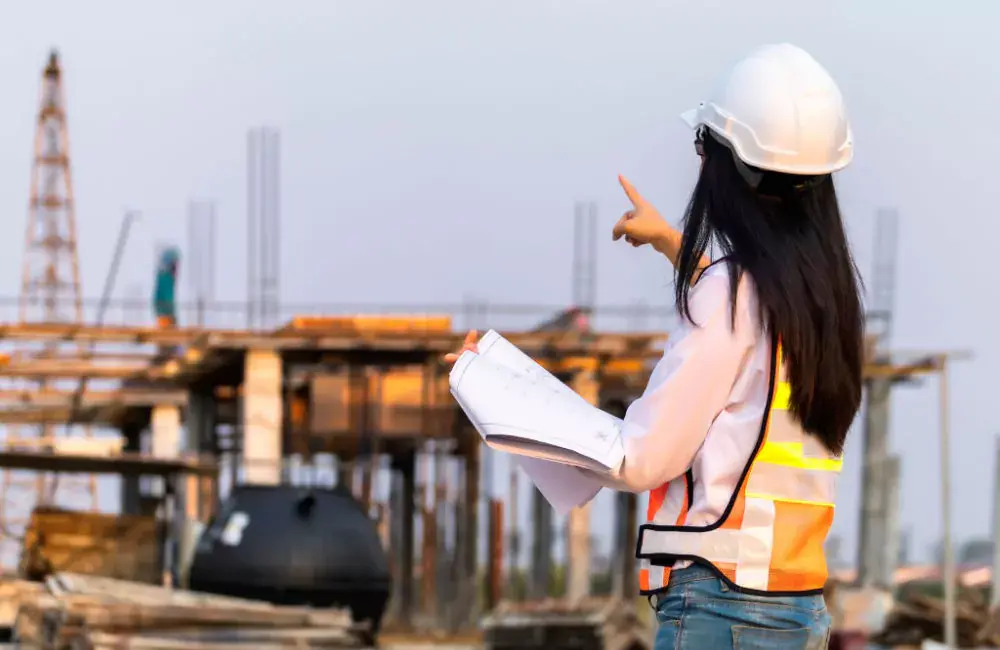
The construction industry in 2026 is more complex, fast-paced, and technology-driven than ever before.
According to Deloitte, global construction output reached over $2 trillion in spending in 2026, with U.S. employment surpassing its pre-pandemic peak at more than 7.7 million workers.
Meanwhile, the Project Management Institute forecasts a demand for 25 million new project professionals by 2030 across industries. Within construction, the demand for Construction Project Managers is projected to grow by over 4.7% by 2033, exceeding the average across sectors, as reported by Construction Coverage.
Simultaneously, the global project management software market is expanding rapidly. According to Monday.com, it is expected to reach $7.24 billion by 2026. These trends confirm that skilled Construction Project Managers (CPMs) are more essential than ever, especially as digital and sustainable building practices reshape the field.
Who is a Construction Project Manager?
A Construction Project Manager is the central figure responsible for overseeing a project from conceptualisation to completion. They act as the intermediaries between stakeholders, including owners, architects, engineers, contractors, and the teams on the ground, ensuring the project stays on time, on budget, and within scope.
They are tasked with not only managing operations but also balancing risk, ensuring safety, negotiating contracts, and maintaining stakeholder relationships, all while delivering quality structures.
Key Responsibilities of a Project Manager in Construction
- Visualising: Planning and defining project scope, goals, and deliverables
- Drafting: Developing detailed schedules and resource allocation plans
- Budgeting: Estimating costs and managing construction budgets
- Aligning: Coordinating with architects, engineers, and contractors
- Decisions: Selecting and supervising subcontractors and vendors
- Quality Checks: Ensuring compliance with legal codes and safety regulations
- Reviews: Conducting site inspections and reviewing progress reports
- Risk Management: Managing risk, change orders, and project conflicts
- Scheduling: Ensuring quality assurance and timely handovers
How to Become a Project Manager in Construction? Education & Key Skills of a Construction Project Manager
A successful Construction Project Manager combines formal education with technical expertise and people-oriented leadership. Here’s what aspiring professionals need in 2026:
Qualification
- Bachelor’s degree in Civil Engineering, Architecture, Construction Science, or Construction Management. This is the first step to ensure your fundamentals are solid and theoretically sound. It also helps you determine whether your aspiration aligns with your long-term goals.
- Master’s degree in Construction Management or an MBA (optional, but preferred for senior roles). This can make the process of transition a lot smoother and faster. As it shows your significant interest and expertise.
- Industry-recognised certifications like Novatr’s BIM Professional Course for Civil Engineers, PMP (Project Management Professional), and CCM (Certified Construction Manager) can give you a competitive edge, as these certifications are based on current industry standards and provide hands-on expertise.
Technical Skills for a Construction Project Manager
- Proficiency in the best construction project management software (Microsoft Project, Primavera P6, Procore)
Ability to create schedules, track project progress, manage resources, and enable real-time collaboration across teams and stakeholders. - Understanding of Building Information Modeling (BIM) and AutoCAD
Familiarity with digital design tools to coordinate construction workflows, identify clashes early, and ensure alignment between architectural, structural, and MEP plans. - Knowledge of construction methods, materials, codes, and permits
In-depth understanding of construction techniques and material behavior, ensuring compliance with local regulations, safety standards, and necessary permitting procedures. - Expertise in cost estimation, quantity take-offs, and budgeting
Able to prepare accurate budgets, perform quantity take-offs, and manage financial resources throughout the project lifecycle to avoid cost overruns. - Familiarity with legal contracts (FIDIC, AIA, NEC formats)
Knowledgeable in standard construction contract formats to manage legal obligations, risks, and ensure clarity in scope and responsibilities. - Scheduling tools and methods like CPM, PERT, and Gantt charts
Uses established scheduling techniques to identify critical activities, manage dependencies, and forecast delays for better project control. - Awareness of lean construction and prefabrication technologies
Understands principles of lean construction and modular building to reduce waste, improve efficiency, and accelerate timelines. - Comfort with digital documentation, reporting, and mobile site tools
Experienced in using mobile tools and digital platforms to streamline reporting, monitor site activity, and maintain organised project documentation.
Soft Skills for a Construction Project Manager
- Strong leadership and decision-making ability
- Clear communication and stakeholder coordination
- Negotiation and contract management
- Analytical thinking and problem-solving
- Time and stress management under tight deadlines
- Emotional intelligence and team collaboration
- Conflict resolution and change management
- Attention to detail and commitment to quality
Construction Project Manager Salary Around the World
Here’s how salaries compare across key global regions in 2026:
|
Country / Region |
Average Annual Salary |
|
₹15–20 lakhs |
|
|
$82,500–$121,000 |
|
|
AED 180,000–220,000 (≈ $49,000–60,000) |
Career Path for Construction Project Managers
Construction offers a well-defined and scalable career ladder. Professionals can begin in entry-level roles and progress into leadership positions:
Entry-Level Roles
- Site Engineer / Field Engineer
- Assistant Project Manager in Construction
- Project Coordinator
Mid-Level Roles
- Construction Project Manager
- Senior Project Manager
- Cost Manager / Estimator
- Contracts Manager
Senior-Level Roles
- Program Manager (handling multiple projects)
- Director of Construction / Operations Manager
- Vice President – Construction
- Chief Construction Officer (CCO)
Professionals can also transition laterally into specialities such as sustainability, construction tech, digital project management, or real estate development.
Conclusion
In 2026, becoming a Construction Project Manager goes far beyond coordinating bricks and timelines. It requires a deep understanding of evolving construction practices, digital tools, and interdisciplinary leadership. As the industry shifts toward smarter, faster, and more sustainable ways of building, project managers must be equipped to navigate this new terrain.
For civil engineers looking to future-proof their careers, one of the most impactful steps is to gain proficiency in Building Information Modeling (BIM). Platforms like Novatr’s BIM Professional Course for Civil Engineers are designed to bridge this exact gap. The program not only teaches real-world BIM workflows and tools used by top firms globally, but also prepares professionals to step into leadership roles on digital-first construction sites.
As demand for smarter infrastructure grows, civil engineers who understand both construction fundamentals and digital coordination tools like BIM will lead the next era of project delivery.
The future of construction is already here, and it needs managers who are ready to build it smarter, better, and faster.
Explore our Resources Page for the latest updates, trends, and insights shaping the AEC industry today
Was this content helpful to you










